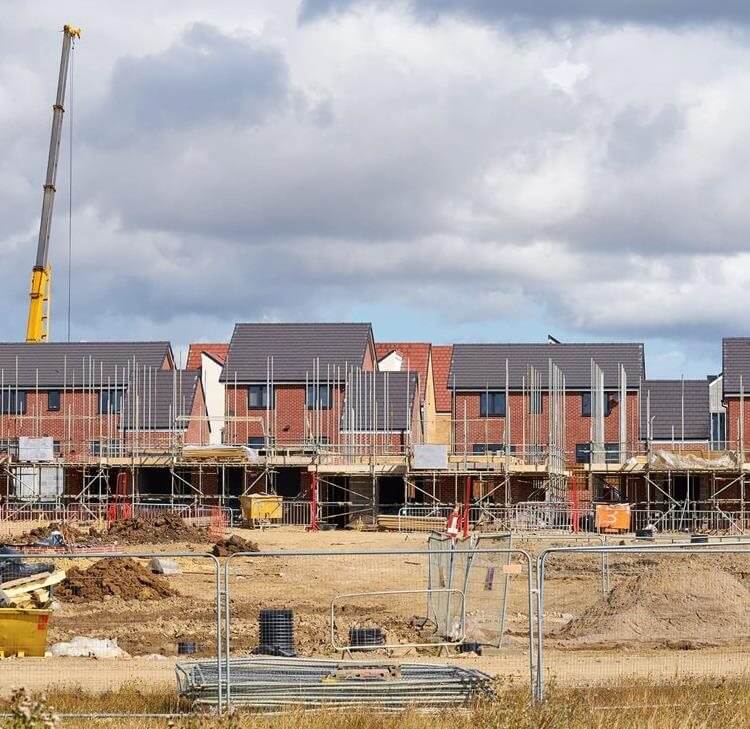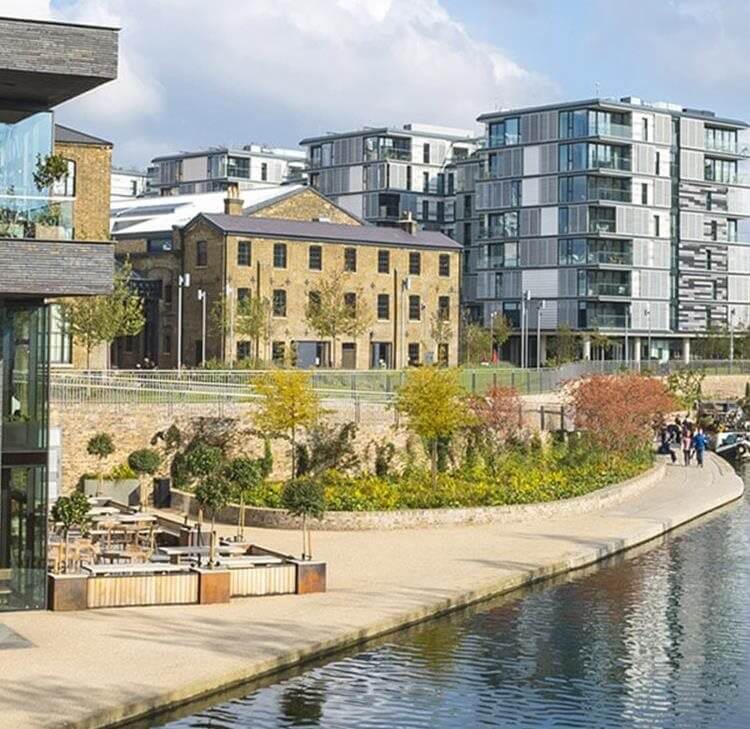Imran Hashmi, senior researcher at New Local, provided key points from the think-tank’s upcoming publication looking at the best ways to engage with the community and used the phrase that summed up our whole discussion – meaningful engagement.
Imran has explored the benefits of deep and meaningful engagement as opposed to more traditional forms where an authority already has a scheme in mind and takes this to stakeholders to find out what they like or dislike.
With meaningful engagement, an authority aims to build genuine trust with key stakeholders and tries to foster a collaborative approach to bringing ideas forward. Done well, this would ensure a community’s needs and ideas are not overlooked, as can be the case with traditional engagement.
Engaging effectively requires the right skills and approach, including being open to gathering ideas, managing expectations and maintaining a conversation with stakeholders. It also involves overcoming challenges such as engaging minority communities.
Jessi believed this approach could address a current problem of a feeling of ‘divorce’ between a consultation and the reality of a regeneration scheme. Who has the conversations on what matters – are conversations happening at all?
Zo Hoida, regeneration partner at Browne Jacobson, pointed out that the timing of engagement is key, particularly where a key asset is concerned, to ensure it is early on in the process and not once the land-owning authority has already fixed on their preferred way forward.
However, Victoria felt there was a risk in not having any initial ideas to present to stakeholders to prompt thinking, ideas and discussion. Some people may struggle to engage because they won’t know where to start. They may have no idea of what may be possible and could find the process overwhelming.
Julian agreed and also cautioned of the need to 'beware the void'. It can be challenging before any impressive plans are drawn up for stakeholders to understand the longer-term impact of ideas.
Building on the point of developing trust, Nalin explained the council took a back seat in some of the discussions for Sheffield projects and worked in partnership with the University of Sheffield to lead the engagement.
Bringing in a neutral partner brought many advantages to delivering the scheme. Many in the community had lost trust in the council so were much more willing to engage with the university. The involvement of an academic partner also brought a new perspective to the discussions.
Youth engagement
Thomas challenged the panel to consider youth engagement, given the types of projects being discussed can take 15 to 20 years to fully deliver and will therefore not benefit many of the stakeholders traditionally involved in consultations. Should youth voices be given more weight?
The panel reflected on the challenges in getting younger people to engage at all. Victoria highlighted commentary that suggested younger generations had less of a long-term view, which if true, may make it difficult to engage them in projects with long-term outcomes.
Morgan highlighted how the challenges young people face are systemic – they may rightly feel they are so far away from being able to buy a home that there’s little point in engaging. Nalin felt that not seeking out the input of the younger generation would be a huge missed opportunity.
Engagement platforms
The panel then considered whether traditional methods of engagement were holding back interaction with a group of people who are more responsive to digital and interactive platforms.
The reliance on conventional consultation methods overlooks the potential of social media and other digital tools that could significantly increase youth participation.
You may be interested in...
Press Release
Browne Jacobson advises ALB Group on acquisition of former M&S department store in prominent Chesterfield town centre building
Press Release
Browne Jacobson returns to UKREiiF 2025
Legal Update
Local Nature Recovery Strategies: A successful step in nature recovery
Press Release
Browne Jacobson advises Norwich City Council on Anglia Square regeneration scheme
Legal Update
Refining the UK subsidy control regime consultation
Legal Update
Navigating the Levelling Up and Regeneration Act 2023: Implications for retailers with vacant premises
Legal Update
Roundtable report: Community engagement in high street regeneration
Press Release
Browne Jacobson sponsors public sector think tank on new report
Press Release
Browne Jacobson advises London Borough of Sutton on major town centre regeneration
Press Release
Browne Jacobson supports Cheadle Market purchase as local authority plans town centre regeneration
Legal Update
Delivering EV charging infrastructure: The local government perspective
Press Release
Browne Jacobson to lead discussions on the future of real estate and infrastructure at this year’s UKREiiF 2024 event
Legal Update
Biodiversity Net Gain (BNG): Are we ready for it?
Legal Update
The Levelling-up and Regeneration Act 2023
Press Release
Browne Jacobson advise North East Lincolnshire Council on Property Sale
Press Release
Browne Jacobson advise Platform Housing on landmark deal, creating over 300 affordable and sustainable homes
Press Release - #BeingBrowneJacobson
Building our future town centres: advising local authorities on landmark acquisitions
Legal Update
Higher-risk buildings – are you ready for 30 September 2023?
Legal Update
Utilising prime retail sites to improve the health of our nation
Legal Update
Retirement housing: A solution to our care and housing crises?
Legal Update
Back in the (Investment) Zone… sort of
Legal Update
A new era of opportunity for high street regeneration?
Legal Update
Regeneration: what role can universities play?
Legal Update
Section 106 Agreements: I’m not dead yet
Press Release
UK and Ireland law firm Browne Jacobson joins UKREiiF 2023
Published Article
Combined County Authorities - Key differences to Combined Authorities
Legal Update
Biodiversity Net Gain — Government publishes consultation response
Opinion
‘Awaab’s Law’- a significant amendment to the Social Housing Regulation Bill
Press Release
Browne Jacobson’s real estate specialists advise Chesterfield Borough Council on prestigious new development - One Waterside Place
Press Release
Browne Jacobson advise High Peak Borough Council on future high street funded acquisition as part of Buxton regeneration vision
Published Article
What are freeports and what benefits could they offer?
Legal Update
Biodiversity Net Gain: positive for nature and an opportunity for landowners
Legal Update
Improving the performance of the NSIP planning process and supporting local authorities
Legal Update
Regeneration funding: Securing Compulsory Purchase Orders in the face of escalating building costs
The focus on the Levelling Up agenda and the availability of grant funding, means there are numerous important regeneration schemes actively being pursued across the country. With ever-escalating project and building costs, in many cases, applications that were made for grant funding were based on costs contingencies that have already been exceeded.
Legal Update
Conservation Covenants – what are they and how will they affect you?
Published Article
Levelling up – the role of public and private partnerships
With aims to level up the UK, and ensure that everyone has the opportunity to flourish, public and private partnerships will be critical success factor. In this article, we look at the role that private finance can play in the performance of a local area and how it might link to regeneration. We also consider the role of central government and regional mayors.
Opinion
Responding to Grenfell – Slow progress is better than none
As the Grenfell Inquiry continues, how have the Phase 1 recommendations changed the fire safety and building safety landscape?
Legal Update
Balancing homelessness duties and housing stock: all change?
On 4 May 2022, the Court of Appeal handed down judgment in the joint case of R (Elkundi and others) -v- Birmingham City Council and R (Imam) -v- London Borough of Croydon [2022] EWCA Civ 601.
Published Article
Queen’s speech: planning reforms to be tackled via Levelling up Bill
Legal Update
Is this the end of Section 106?
The Levelling-up and Regeneration Bill was introduced to Parliament on 11 May 2022. In this Bill, and in accordance with earlier reports, the government intends to replace section 106 agreements and the existing Community Infrastructure Levy (CIL) with a new Infrastructure Levy.



































